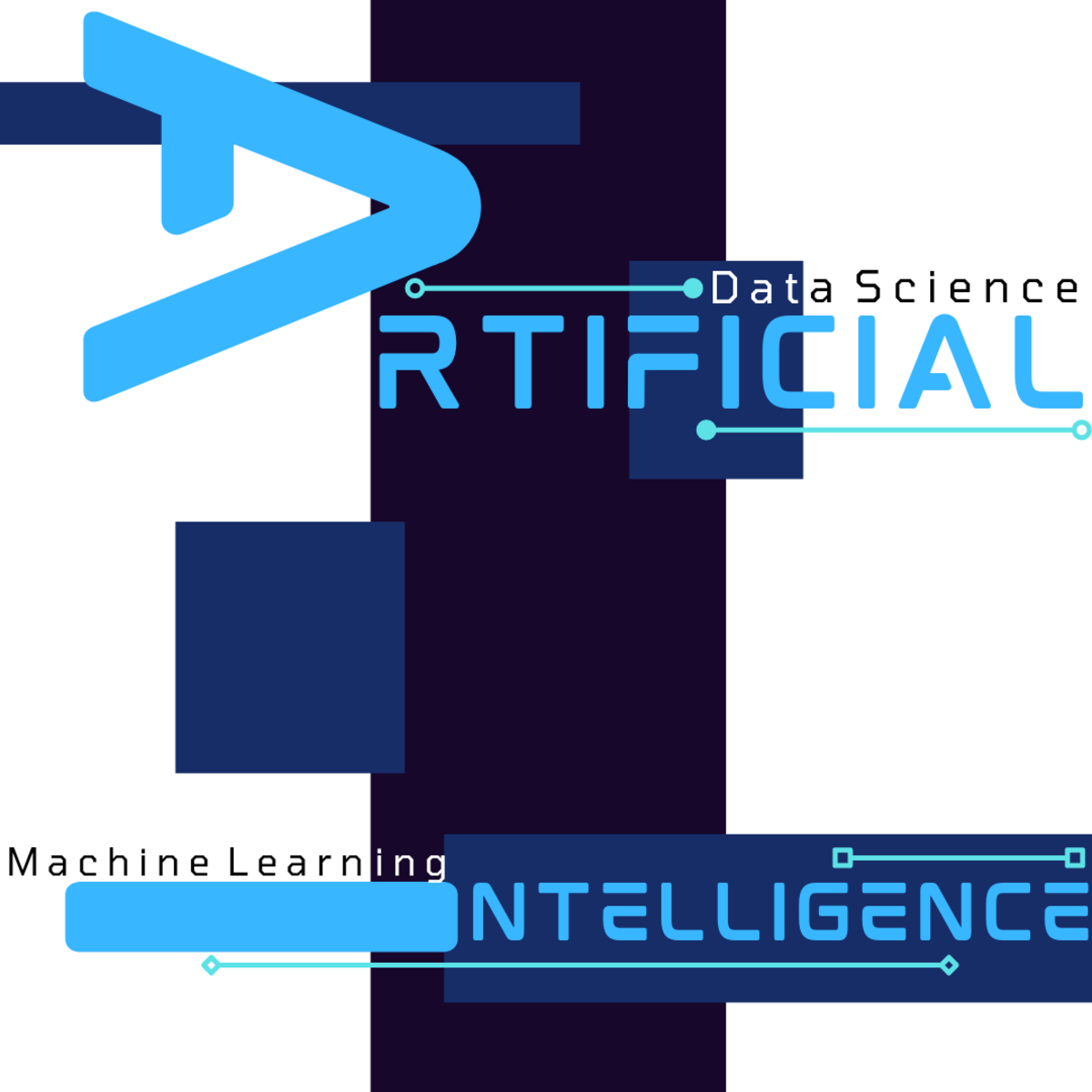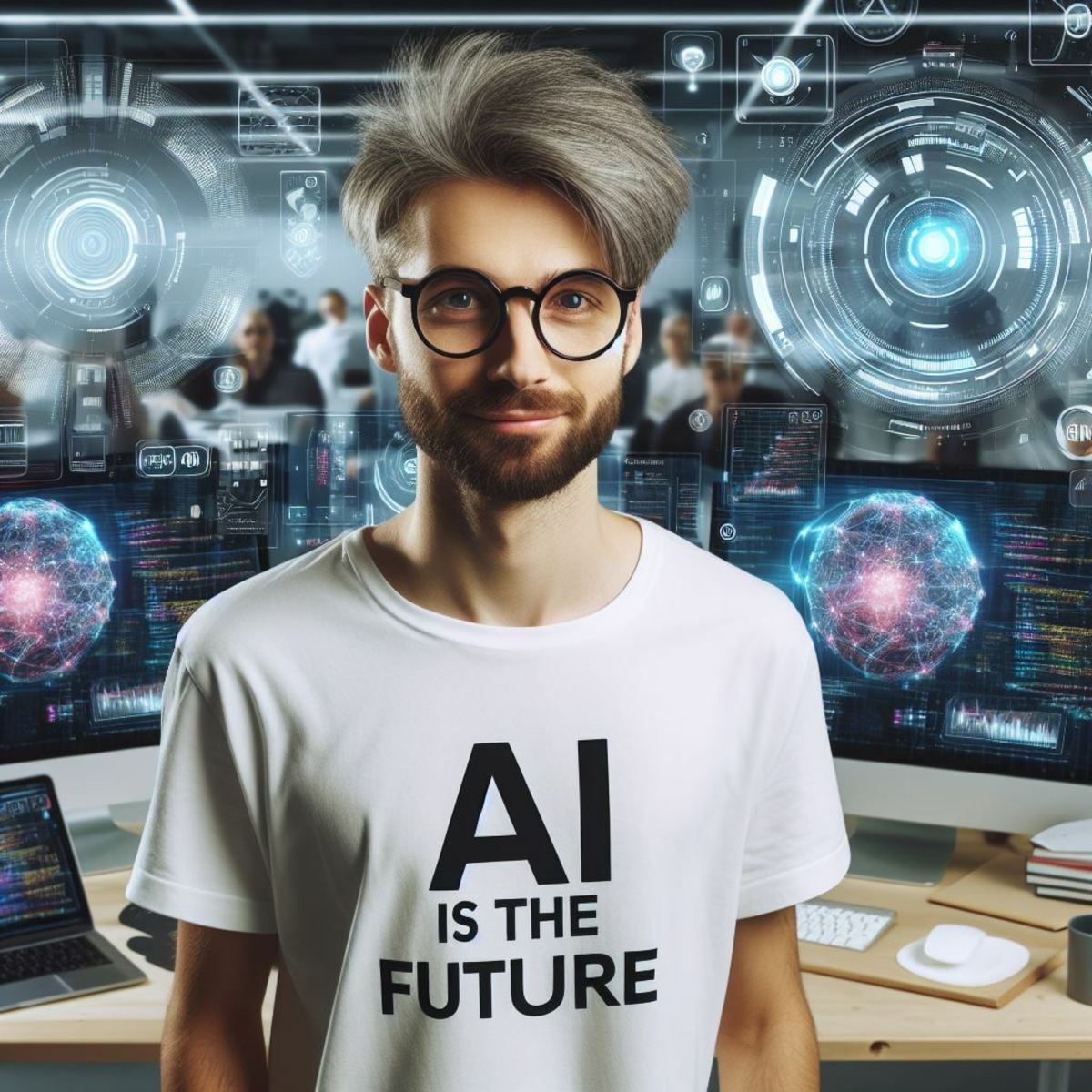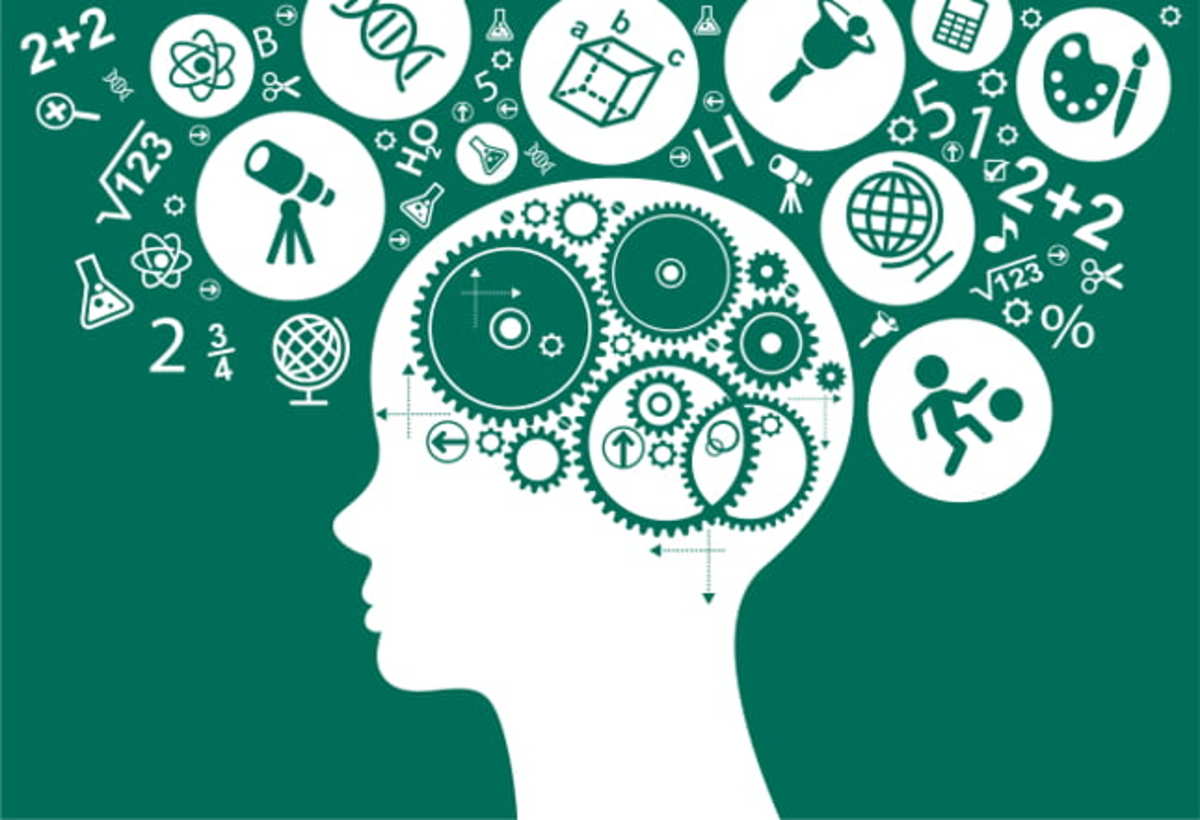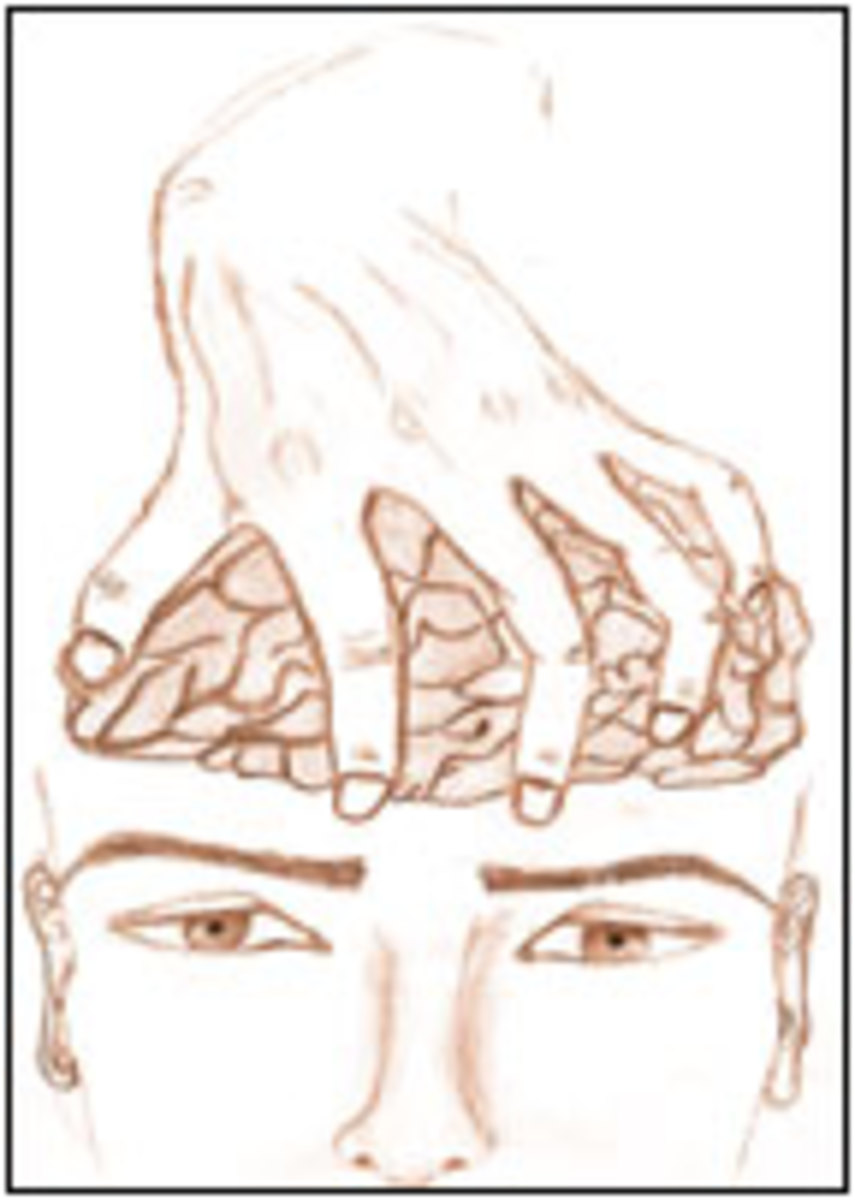Artificial Intelligence: What Evolution Has In Store For Us
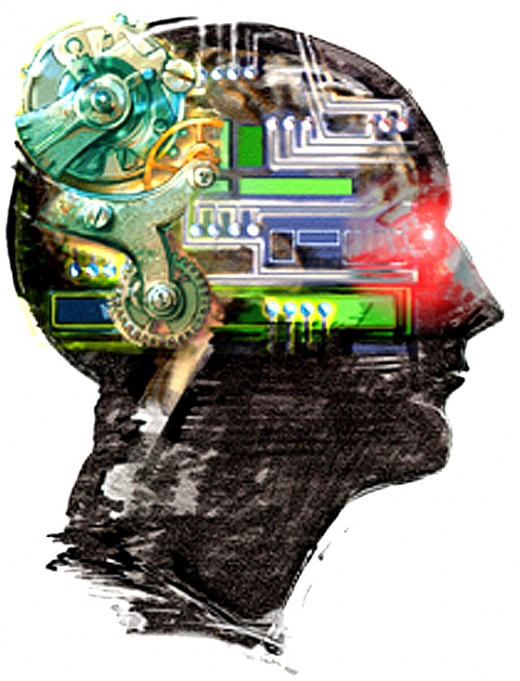
Introduction
Biological life is composed of carbon, hydrogen, oxygen, and nitrogen. Ninety-six percent of all known life is a combination of those four elements, referred to by the acronym, CHON. The six most abundant elements in the Universe are CHON, helium, and neon.
In order for life to originate anywhere in the cosmos, CHON is a necessary collection of ingredients that must be present. These heavy elements did not form until after the first stars went supernova. Life had no ability to appear until seven billion years following the big bang. Based on this prospect, the oldest possible civilization in the Universe could have a four or five-billion-year head start on ours.
There are around 10 million different species living on Earth. Of all the species that ever lived, 99.9% are now extinct. Life has flourished on the planet for 80% of its existence, intelligent life only 0.02%. Intelligent life, according to many biologists, is rare or limited to this planet alone. The overwhelming number of star systems in the Galaxy, notwithstanding entire Universe, poses a different argument. Twenty-five percent of all stars in our Galaxy, some 200 billion of them, are potential candidates for supporting life, and most are billions of years older than the Sun. We do not have to know…to know.
Poll #1
Do You Believe Evolution Is A Valid Theory?
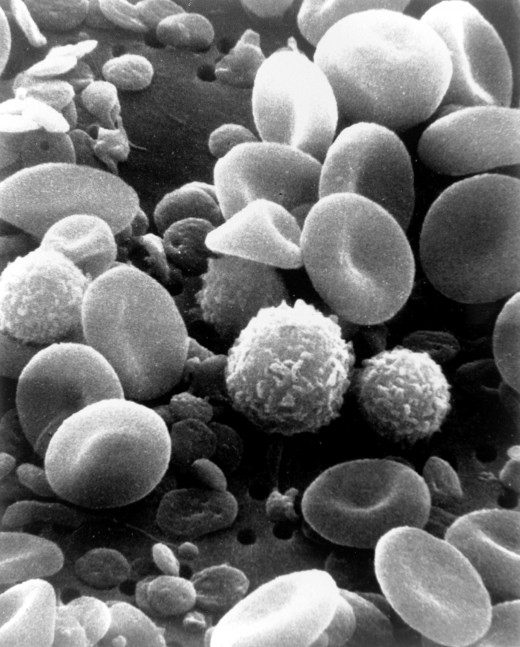
What Is Life?
“Organic life, we are told, has developed gradually from the protozoon to the philosopher; and this development, we are assured, is indubitably an advance. Unfortunately, it is the philosopher, not the protozoon, who gives us this assurance.”—Bertrand Russell[i]
What does it mean to be alive? Is life restricted to biological components, or could it be mechanical? Biological life may be the most fragile form of life in the Universe, just not necessarily the best.
According to the Gaia hypothesis, the entire planet is a living organism. It is a complex structure, much like the body, dependant on the stability of each element within itself. The entire Universe can be applied to this idea too, but on a larger stage.
How does one define what life is? What are its properties? Is something alive because of its functional byproducts: the ability to breathe, eat, sleep, move around, or interact with the environment around it? Are these traits necessary components of life, or could it exhibit foreign characteristics and still be considered alive?
Just because something does not appear natural or biological should not mean it is not alive. Since subatomic particles are basic constituents of life, and everything is made up of atoms, perhaps on some basic level they too are alive.
Would an intelligent artificial being be considered alive? Since mechanical beings might mesh with living ones at some point in the future, making a distinction between the two might become difficult.
A scarier concept would be if people are manufactured rather than born. The world may become so overpopulated it becomes the only viable alternative. In the future, machines may outnumber people and become the next step in our evolutionary process.
Perhaps energy defines what is and is not alive. Energy is the true basis for life, not heavy elements. CHON is a product of energy in the Universe going back to the initial fluctuation in vacuum. If life requires no magical spark to originate, then energy should be a natural spark for the original driving force. If quantum energy contains the blueprint for the soul, then it is the basis of all life in the Universe and could be that very spark. The definition of life may become very different in the distant future.
[i] Russell, Bertrand. Mysticism and Logic. London: Longmans, Green and Co., 1919, p. 106.
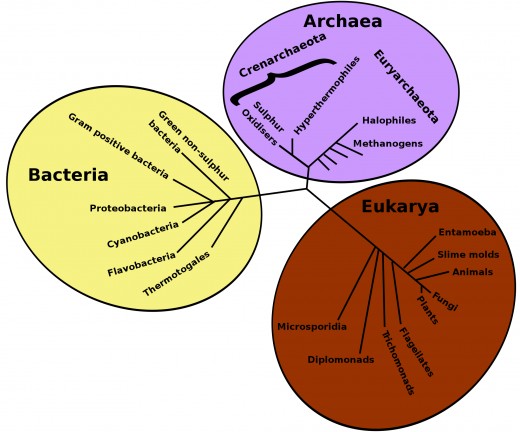
The Origin Of Organisms
Synthetic, biological integration is a direct form of unnatural selection that will become common procedure. Replacing dysfunctional or missing body parts is another form of synthetic evolution that will become a significant part of future medical practice. It is common practice with prosthetics and will become as commonplace as plastic surgery is today. As we desire better, longer-lasting replacements, mechanical body parts will be the next logical choice. Artificial limbs combined or exchanged with deficient body parts will change the face of humanity, once and for all. The ultimate fate of all intelligent beings may be to the synthetic.
Dramatic changes in evolution require more time. Biotechnology, bioengineering, and gene splicing are modern advances that could have a significant impact on human evolution. At first, gene splicing will have the biggest impact. Once we reach the limits of perfecting the human genome, biomechanical integration will follow. Humans have a knack for discovering new ways to become stronger, faster, and smarter.
The oldest direct evidence for biological life dates back to 3.5-billion-year-old rocks found in Western Australia. J. William Schopf of the University of California at Los Angeles found such rocks in 1993. These advanced microscopic organisms appeared a billion years after Earth formed, a relatively short period of time for the emergence of life. Nobel-prize-winning biochemist Christian de Duve stated, “Life is almost always bound to arise…wherever physical conditions are similar to those that prevailed on our planet some four billion years ago.”[i]
Life arose on Earth either as a result of some natural mutation in lifeless amino acids, was influenced by materials originating from comet impacts, or by directed panspermia, which is the idea life was brought here by an advanced civilization. Earth may lie within the habitable zone for a reason.
Scientists base the ability of life to emerge in any given system on the one example of intelligent existence we have. Other coincidental factors in the natural development of the planet and atmosphere contributed to this emergence of life. Perhaps these factors are nothing more than a natural part of the evolution for most planets found within the habitable zone of their solar system.
Life is probably a natural part of the overall blueprint of universal development. Biologists may not have the right calculations to determine just how prevalent life is in the Universe. The “impossible” appearance of humanity should lay any doubts to rest for those that do not subscribe to a divine model. One interpretation argues where there are the slightest conditions for life to arise, it most definitely will. The other argues there are too many parameters and variables. The Universe could be teeming with life, and it may be a natural, “intended” state of existence. The pessimist’s view is life is rare and restricted to this planet. Until evidence surfaces to the contrary, a lack of information is presently on their side.
Human existence appears as a miracle since we have no comparable data. No matter what biologists argue or how rare their limited calculations determine intelligent life to be, it will propagate as a natural part of evolution throughout the Universe. Where there is the slightest will, there will be the grandest way. And where there is the slightest way, there will most certainly be the grandest of will.
[i] de Duve, Christian. Vital Dust. New York: Basic Books, 1995, p. 292.
Poll #2
What Do You Think Human Beings Will Ultimately Evolve Into?
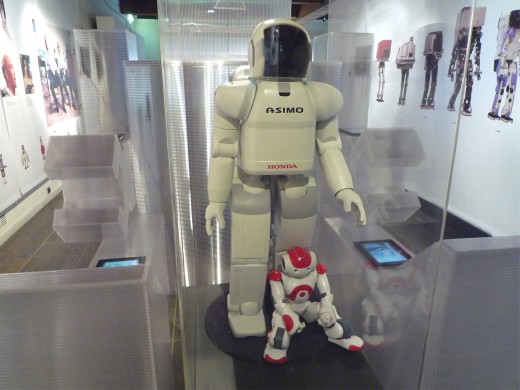
Artificial Intelligence
"You insist that there is something a machine cannot do. If you will tell me precisely what it is that a machine cannot do, then I can always make a machine which will do just that!"—John vonNeumann[i]
Will machines ever live up to humanity’s one-sided definition of intelligence? Will they ever become conscious? Once technology advances to a point where a person or android is manufactured in the lab, will either have the same intrinsic rights as a person born in the womb if they were made with feelings and nerve endings? If they can be manufactured like a human in almost every respect, then who are we to argue they should have no rights?
Artificial Intelligence is a process of reproducing digital computers that mimic intelligent human behavior through logical reasoning. John McCarthy, Professor of Computer Science at Stanford, coined the term artificial intelligence in 1955. He believes it is possible to make robots better than people, at least in an ethical sense. He feels there are certain characteristics of human emotion scientists would never want to imitate in a machine.
Neural networks are different from AI. They are information-processing systems designed to mimic the human brain. A neural network is reactive to environmental and inputted stimuli, unlike a computer which runs programs and follows sequenced instructions as part of its basic programming.
Isaac Asimov devised a set of three basic laws all future positronic robots must obey: “(1) no robot through its actions, or lack of action, shall cause any harm to any human being; (2) a robot must obey the commands of any human, except where that would contradict the First Law; and (3) a robot must attempt to prevent harm from coming to itself, except where that would contradict either of the first two laws.”[ii]
What are the main differences between AI and neural networks? AI researchers utilize a logic-and-reasoning approach when programming computers to behave with intelligence. Researchers of neural networks believe intelligent behavior is instinctive, responding to stimulation on a less reasoning basis. Neural networks are able to solve abstract situations while AI focuses on logical problem solving.
A few researchers have set out to prove all animals have some level of relative intelligence, morals, and non-instinctive feelings. Many have made groundbreaking discoveries that may force biologists to redefine what it means for a species to harbor intelligence. Advances in artificial intelligence and neural networks may do the same.
Consider the following questions: Will androids ever have a mind, be allowed to marry, harbor a distinct soul signature, consider its creator as God, follow a particular religion, get discriminated against, become more intelligent than humans, replace people at the workplace, be turned into slaves, or become a victim of humanity’s ego? There are many more questions to consider, and none of them produce any easy answers. One thing we do know, which is occurring this moment: machines are replacing humans at the workplace for various kinds of jobs.
Professor Hans Moravec, artificial life (AL) researcher at Carnegie Mellon University, believes over the next 100 years, synthetic, AL beings will evolve until they replace all humans, and not just in the workplace. He believes they will evolve on their own, much faster than biological life. Moravec feels humanity should treat this new intelligence, the children of our minds, as being alive, or else they will evolve on their own to become our successors.[iii]
Robotic engineering is a new technology that will force people to redefine what it means for something to harbor intelligence. Some biologists argue engineers will never develop the technology to create an artificial entity comparable to a human being. Why do scientists, generation after generation, limit the potential capabilities of humanity based on current applications of and premature predictions for technology? What scientists of this generation think future ones will accomplish should never be a basis for what humans actually will. That position is from a limited reference frame, and Chapter 6 outlined just how wrong they can be.
Some robotic engineers believe it will never be possible for man to create a machine similar in intelligence to the average human being. They argue it would take an incomprehensible amount of programming to come up with one able to perform the simplest of tasks. Others in the field argue it is only a matter of time.
Which group of engineers is right? The key is to remember that anything will become possible. Anything we can imagine will become the new reality, whether the prediction becomes attainable in our lifetime or the next. The sky is not the limit. It is only as far as some can see.
Sebastin Thrun of the Robot Learning Laboratory at CarnegieMellonUniversity and Joe Engelberger, founder of HelpMate Robotics, both agree the remaining obstacle to building and developing a useful humanoid robot is money since politicians put little funding into the research. In an interview in the March 2000 issue of Discover Magazine, Thrun said, “If we could just get one percent of the money put into cars today, a robot that assists you at home would be a reality in five to ten years.”[iv] During the same interview, Engelberger admits to having a difficult time finding an industrialist who will agree to test a personal-assistant, humanoid robot in the home of a frail, elderly person. He said scientists are only $5 million and 27 months from implementing such a venture.
Hans Moravec, cofounder of the robotics department at CarnegieMellonUniversity, predicts machines will match human intelligence and consciousness by 2040. From then on they will get better. Should it take until 2240 or 3040, it will become a reality. He further argues there will be an eventual symbiotic relationship between human and machine.[v]
In a 1946 science-fiction novel by Will F. Jenkins, titled A Logic Named Joe, there is somewhat of a premonition for home computers.[vi] In 1946, computers had to be enormous to do simple calculator computations. The story describes a world where logics are so small there is one in every home. These logics are all connected, share information, and combine to create a worldwide library of knowledge at one’s fingertips. Today, computers and the internet are taken for granted every day throughout the world. Could some predictions of future AI by various science-fiction authors come to fruition as well?
Considering distances between each star system are too vast for life forms to traverse, aside from theories of folding the space-time continuum, a manufactured being would be ideal as an interstellar explorer. A robot is the primary, practical solution to foreseeable space travel. In order for human beings to share in this venture, they may want to become a part of their creation. Perhaps mechanical beings, at the very least hybrid, biomechanical life forms, are the final product of evolution for all worlds since they would, “unnaturally,” outlast their makers.
If an extraterrestrial civilization is monitoring Earth, it is possible they are manufactured rather than biological, or a combination thereof. Such beings might appear biological at first glance yet reflect the type of being who manufactured them.
[i] Jaynes, E.T. Probability Theory: The Logic of Science. (quoting John von Neumann in a 1948 Princeton lecture), UK: Cambridge University Press, 2003, p. 7.
[ii] Asimov, Isaac. I, Robot. New York: Gnome Publishing, 1950, pp. 36, 37.
[iii] Moravec, Hans. Mind Children: The Future of Robot and Human Intelligence. Cambridge: HarvardUniversity Press, 1988, pp. 1-5.
[iv] Thrun, Sebastian. “Discover Roundtable: The Future of Humanoid Robots.” Discover Magazine. (March 2000): p. 88.
[v] Moravec, Hans. Robot: Mere Machine to Transcendent Mind. New York: OxfordUniversity Press, 1999, p. 232.
[vi] Jenkins, Will F. A Logic Named Joe. (first appeared in March 1946 “Astounding Science Fiction” Magazine in 1946 under his surname, Murray Leinster). New York: Baen Books, 2005.
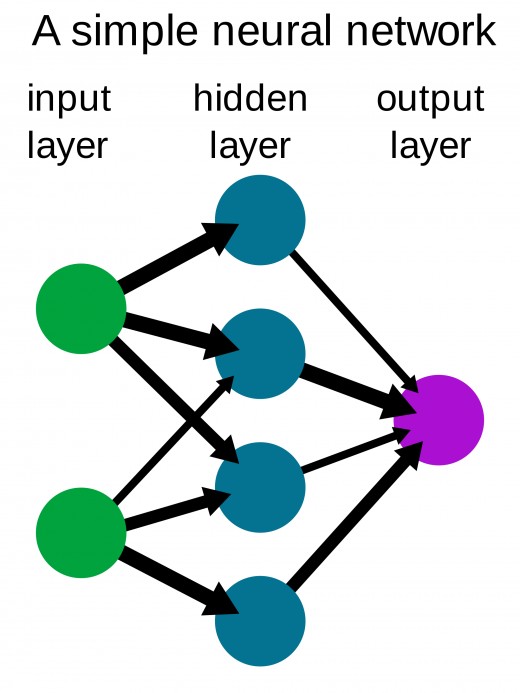
Biological And Mechanical Integration
“Part of the inhumanity of the computer is that, once it is competently programmed and working smoothly, it is completely honest.”—Isaac Asimov[i]
In 1967, Isaac Asimov said, “Maybe humanity itself will die out as humanity and sort of melt into this machine culture…I wonder if we will make robots so much like men and men so much like robots that eventually they will lose their distinction altogether and have a combined culture.”[ii]
Will scientists create artificial people using synthetic biology instead of machinery? Will people utilize a combination of both to extend life or strictly improve upon the biological? Or is the ultimate fate of humanity, notwithstanding all intelligent beings, mechanical intelligence? The possibilities are limited to the imagination and whatever we discover works best after trial and error.
Many consider creating an artificial person wrong, both morally and ethically. Some religious fanatics argue we have no business playing God by meddling in such divine affairs. Assigning specific humanlike traits to the design of a synthetic being is, in their opinion, immoral.
Creation of an artificial living being would force lawmakers and politicians to redefine the entire legal system. Would they be eligible for the same intrinsic rights as any human if they exhibit most humanlike traits? If so, they should be subject to the same punishments. All social and ethical morays expected of society would be demanded of any artificial being.
Many believe the next logical step in evolution will be to the synthetic. Scientists are developing artificial organs that work like the real thing. Manufactured body parts will become the perfect prosthetic. Human lifespan will increase by leaps and bounds because of these artificial breakthroughs. Many years from now, scientists will have mapped and replicated the entire human brain in the lab. Researchers will learn how to stop the aging process of cells, and people will live indefinitely. At first, only those with financial means will reap the benefits. A combination of synthetic, cellular, and mechanical organs will appear on the market to replace aging, worn-out ones. People walking the streets will become more synthetic and less biological as these items become readably available to the general public. Some will be biological, others synthetic, a few mechanical, and yet others a combination of them all.
Individuals looking for a physical edge may choose to integrate mechanical body parts instead of synthetic ones. If a limb is dysfunctional, worn out, or missing, a person may decide to replace it with a mechanical one that is better, stronger, and will last much longer than its biological counterpart. In order to live as long as possible, all body parts will need replaced, including the brain.
The Sims video game creator, Will Wright, argues technology is already an extension of our bodies. Our vehicles, smartphones, and other portable devices are an essential part of our daily lives. At this point, we are not yet “plugged in” to them. He and physicist, cosmologist, and astrobiologist Paul Davies agree biology is nothing more than a transitory phase for the evolution of intelligence in the Universe.[iii] Though, on the surface, this idea appears unnatural, synthetic beings may be one of the final stages in the evolution and development of any intelligent species.
Many skeptics argue science will never duplicate some of the complex organs required for such breakthroughs. Others insist humanity is morally obligated to avoid such advances since it is wrong to assume the role of God or meddle with Mother Nature.
The desire for longer life will erode any moral implications. Moral reasoning evolves over time, though some truths remain universal and timeless. But if you consider what a Christian tolerates now compared to a hundred years ago, some ideas considered risqué today will not be in another hundred years. Longevity is important to the human race. The fear of death will become the biggest motivator for people to embrace the synthetic, just as it is with adherence to religion. Over time, the desire to live longer will erode any old-fashioned ethics and social mores that endure. People will integrate with the synthetic, and humanity will continue evolving. It is human nature to live as long as possible, whether as biological or mechanical beings. It is evolutionary destiny, and evidence for such a future is prevalent in prosthetics and advances in replacement organs.
Someone from the sixteenth century could never imagine the complexities of today’s technology, “evils” which humanity now takes for granted as normal, everyday life. If we had a device that could see into the future, 200 years from now would appear just as unimaginable and heinous to us.
[i] Asimov, Isaac. Author, Professor of Biochemistry, BostonUniversity. 1920-1992.
[ii] Asimov, Isaac. Author, Professor of Biochemistry, BostonUniversity. 1920-1992.
[iii] http://venturebeat.com/2011/04/17/will-wright-future-of-games/. Takahashi, Dean. April 17, 2011.

Will Humanity Become God-Like
“(God) said that we were "gods" and He is going to make good His words. If we let Him-for we can prevent Him if we choose-He will make the feeblest and filthiest of us into a god or goddess, dazzling, radiant, immortal creature, pulsating all through with such energy and joy and wisdom and love as we cannot now imagine, a bright stainless mirror which reflects back to God perfectly (though, of course, on a smaller scale) His own boundless power and delight and goodness. The process will be long and in parts very painful; but that is what we are in for. Nothing less. He meant what He said”—C. S. Lewis[i]
If scientists develop the technology to inhabit and terraform a once uninhabitable planet, will some argue they are assuming the role of God? How is that a fair assumption if God created humans in His image? Are we not already meddling in affairs once thought of as “God’s domain?” Perhaps changes in technological perspective over the years have given us short memories.
One could assume an advanced alien civilization now has the technology to terraform and inhabit multiple lifeless planets. If they decided to perform a “Genesis experiment” in another solar system and remain anonymous to any life forms originating there, such beings would regard the aliens as godlike.
What if the Bible is such a Genesis, outlining the creation, inhabitation, and dominion of Earth by some advanced civilization? Some point to evidence in the Bible that suggests Earth is being monitored by such divine terraformers, perhaps ones with excessive egos. In a million years, would humanity have the capability of doing something similar? Would we desire to? NASA is working on plans to begin terraforming Mars before the end of the century. Granted, such plans are considered fringe science and well beyond current capabilities, but perhaps technology will allow for such a venture in the not-too-distant future.
What kind of advanced technology would enable humans or an evolved form of them to terraform and colonize several worlds throughout the Galaxy with primitive life? Aside from the fact that humanity would no longer resemble Homo sapiens, their technology would resemble a kind of magic we could only dream of. Futurists and science-fiction writers, the best visionaries of anticipated realities, could never, themselves, imagine what we might accomplish in the distant future.
Considering the preceding scenario will become possible, any future terraformers would need to dispatch androids every so often to check up on their experiment, gathering samples and data for return to our Solar System. They could set up a base on one of the nearby planets or moons before returning with all assimilated data. If intelligent life begins to evolve on one of them, a base hidden underground or below the ocean floor would provide adequate anonymity. Once the life forms on that planet display intelligence, would they consider the terraforming androids as God if ever discovered? Would we allow the developing society to believe as much and do nothing to convince them otherwise? Would our egos embrace it? This scenario resembles an episode of the television program Ancient Aliens on The History Channel.[ii]
Any surfacing evidence of their creators would convince them to render the visitors as God or gods. Perhaps a need for obedience and moral direction might arise in order for future scientists to maintain control over their socially evolving experiment.
Perhaps life is so rare in the Universe that colonization of as many planets as possible by the select advanced beings out there is necessary to keep it populated. If life is that rare, maybe they feel it is their duty to do so. Any life discovered throughout a galaxy may be descendants of the first and only beings in it to evolve. If so, most would resemble each other and reflect similar carbon-based characteristics.
Throughout history, societies migrated all over Earth to survive and perpetuate. As humanity evolves, it may need to set its sights higher than the Moon or Mars. Humankind may realize it is not only a part of Earth’s ecosystem but that of the entire Universe’s.
The above thought experiment for universal colonization is purely hypothetical. It would depend on unimaginable advances in technology. The only point to consider is such a venture is possible. Future motives for or against interstellar travel is not something modern society has the right to doubt, especially when hearing some of the lame arguments to the contrary by a few SETI astronomers.
Is cryonics another God-like endeavor? Cryobiologist Mike Taylor is skeptical about reviving a frozen body because of how ice crystals rupture blood vessels and do permanent damage to cells. Nanotechnology may be a solution to this problem, but plastination is probably the most viable. Cryobiologists would need to inject large quantities of microscopic, AL machines into a frozen cadaver to repair all biological damage. Some nanotechnologists believe within 100 years, scientists will revive a frozen body safely. In addition to gene technology, molecular nanotechnology could be another key solution to the problem of death.
The principal obstacle for cryonics will be the problem of reviving consciousness. According to physics professor and science-fiction writer Gregory Benford, “If you can save the brain, you can save the memory.”[iii]
Science-fiction author Brian Stableford believes a computer will, one day, scan and upload exact copies of the brain and memory onto a single hard drive. British Telecom is working on such advances and predicts it will become viable before the end of the century. But will that copy retain the same consciousness and individuality? Previous arguments of a naturally occurring soul might provide the only solution.
Frank Tipler, mathematics professor and author of Physics of Immortality, says billions of years from now, computers will upload the entire Universe and whole of life’s history since the beginning of time.[iv] In other words, an extremely advanced civilization will revive all life in a digital universe. (Watching a movie like The Matrix is enough to convince some that such experiments are taking place now.) Tipler adds that life forms will not be aware of its revival, because this new reality will resemble so much like a real universe. It will appear as real to them as reality does to us.
But is a copy of consciousness in fact conscious, even a perfect copy? Or is a digital world nothing more than a complex, lifeless video game that requires interaction by a living person? While we may reanimate the dead or make a perfect copy of one’s consciousness, the question of whether that version will be the same individual remain unanswered.
Professor Roy Walford of the UCLA Medical Center says, “People are so programmed to think that lifespan is fixed by some god or nature, when really it’s just a problem in biology.”[v] If people become immortal through science, would they too display God-like characteristics? In the future, humanity may, for better or worse, resemble the very God they worship.
[i] Lewis, C.S.; Lewis, Clive Staples. Mere Christianity. (1952) New York: Macmillan, 1984, p. 174, 175.
[ii] Ancient Aliens. Kevin Burns, Prometheus Entertainment. 2010.
[iii] Benford, Gregory. Author, Astrophysicist. 1941-.
[iv] Tipler, Frank. The Physics of Immortality. New York: Anchor Books, 1994.
[v] Walford, RoyLeeM.D.UCLAMedicalCenter. 1924-2004.
"Universal Logic: What is the True Meaning of Life?" BOOK
- Click Here If This Article Interested You
A site for discussing various "meaning of life" topics.
Glossary
Android A synthetic being manufactured in the lab. An android is different from a mechanical robot since, on the surface, it appears human. One may be composed of grown biological components, others synthetic. In theory, it can be programmed to perform various duties like a robot.
Artificial Intelligence (AI) Not all robots are considered AI. First, there must be a level of actual reasoning and intelligence before robots are considered as such. As of yet, we do not have the technology to create AI, but engineers are making great strides in the field. Some predict we should have a working AI model before the end of the century. AI does not have to be a walking, talking robot but could be in the form of software.
Artificial Life (AL) Any form of mechanical, synthetic, or biological life created in the lab. A biological android would be considered AL. Most scientists feel a synthetic being should retain a certain level of intelligence before considering it life. Like AI, it will be many years before an artificial being or program can claim that definition.
Directed Panspermia Theory of an alien civilization intentionally populating Earth with life. History Channel’s Ancient Aliens attempts to discover direct proof of this theory in the form of evidence found in ancient religious texts, artifacts, and structures on Earth. Scientists believe there is no direct evidence of alien visitation, plus the distances between star systems are too vast, so, to them, the theory is speculative.
Gaia hypothesis The idea that Earth is a living organism and we are all a part of it.
Nanotechnology Billions of dollars have been invested by the government for research into this technology. There are many applications, nanobots and cryonics among the most popular. For the purposes of this book, future applications in cryonics include injecting programmed, microscopic machines into a frozen cadaver to repair ice-crystal damage that occurred during the freezing process.
Neural Networks Different from artificial intelligence, they are intelligent, self-learning systems that grow and develop independent of their initial programming. Neural networks are artificial neurons designed to continue progressing where their basic programming leaves off. They are artificial, intelligent circuits that mimic the behavior of biological neurons and have the ability to learn on their own. Basic neural networks can be created in the lab, but it will take decades before complex ones that mimic human behavior are manufactured.
Positronic First conceived by science-fiction author Isaac Asimov. It is a mechanical brain in a robot body structured like our own and functions in much the same way. Though written about in some of his earliest stories (1940), it will be many years before we have the technology to produce one.
S.E.T.I. The Search for ExtraTerrestrial Intelligence. SETI astronomers search the heavens for radio signals of intelligent origin. Some astronomers believe it is a waste of time since most Type I or above civilizations would use a different form of communication. The window from Type 0.5 to Type I status is too narrow for any civilization to leave their footprint in the cosmos. Opponents to the program argue it is like searching for a needle in a haystack. It could be argued they are wasting time and resources since the extraterrestrial hypothesis may be valid, so they should be devoting their resources elsewhere. One thing is clear; at least they are searching for what would be the greatest discovery of mankind.
Terraform Process of modifying or transforming a moon or planet into a livable environment for humans. In the future, we may develop the technology to terraform the Moon or Mars so that people can live there in an oxygen environment. Overpopulation and depletion of Earth’s natural resources might provide motivation for such an endeavor. It would take decades, perhaps centuries to change a planet’s atmosphere before it could become livable.





